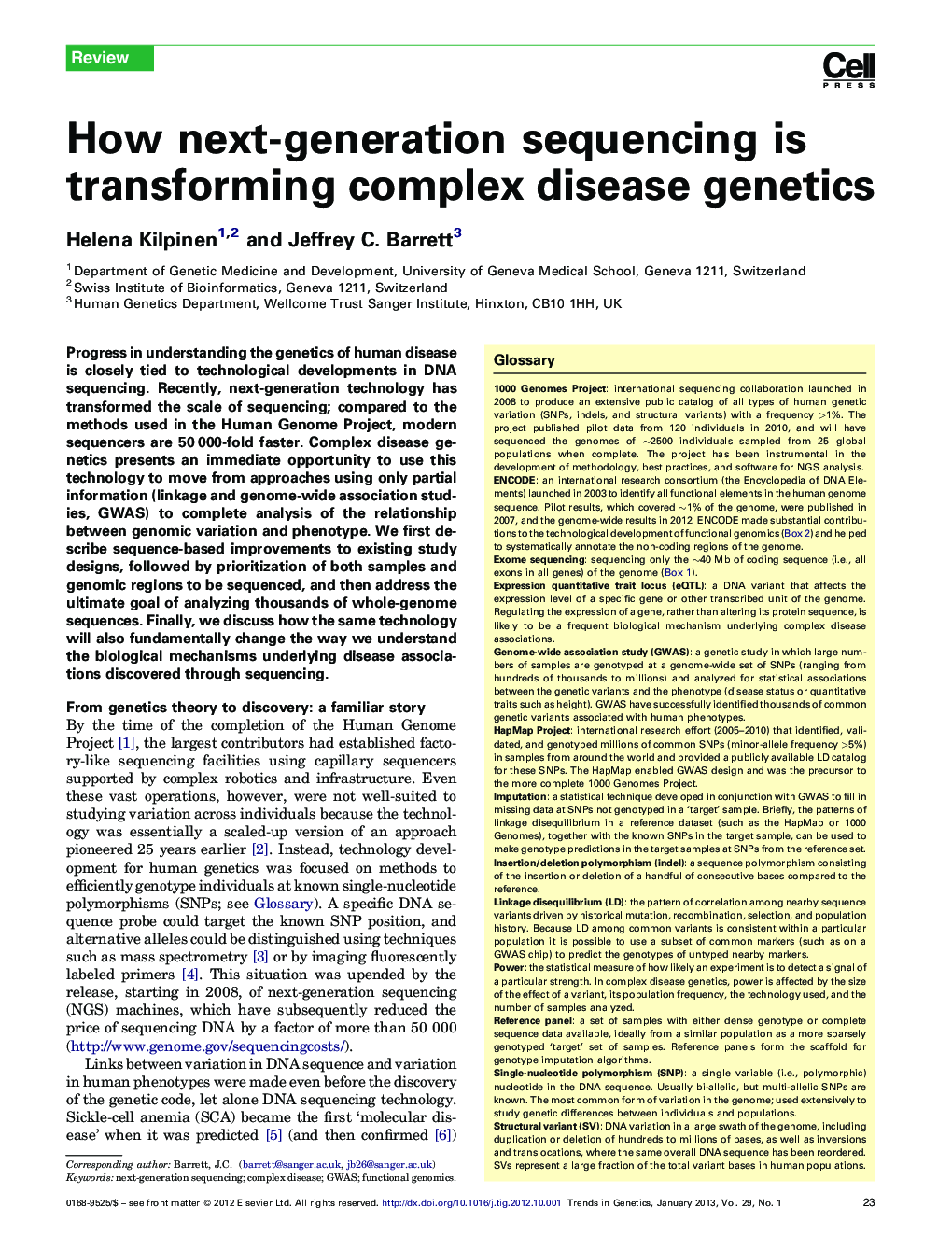| Article ID | Journal | Published Year | Pages | File Type |
|---|---|---|---|---|
| 2824780 | Trends in Genetics | 2013 | 8 Pages |
Progress in understanding the genetics of human disease is closely tied to technological developments in DNA sequencing. Recently, next-generation technology has transformed the scale of sequencing; compared to the methods used in the Human Genome Project, modern sequencers are 50 000-fold faster. Complex disease genetics presents an immediate opportunity to use this technology to move from approaches using only partial information (linkage and genome-wide association studies, GWAS) to complete analysis of the relationship between genomic variation and phenotype. We first describe sequence-based improvements to existing study designs, followed by prioritization of both samples and genomic regions to be sequenced, and then address the ultimate goal of analyzing thousands of whole-genome sequences. Finally, we discuss how the same technology will also fundamentally change the way we understand the biological mechanisms underlying disease associations discovered through sequencing.
